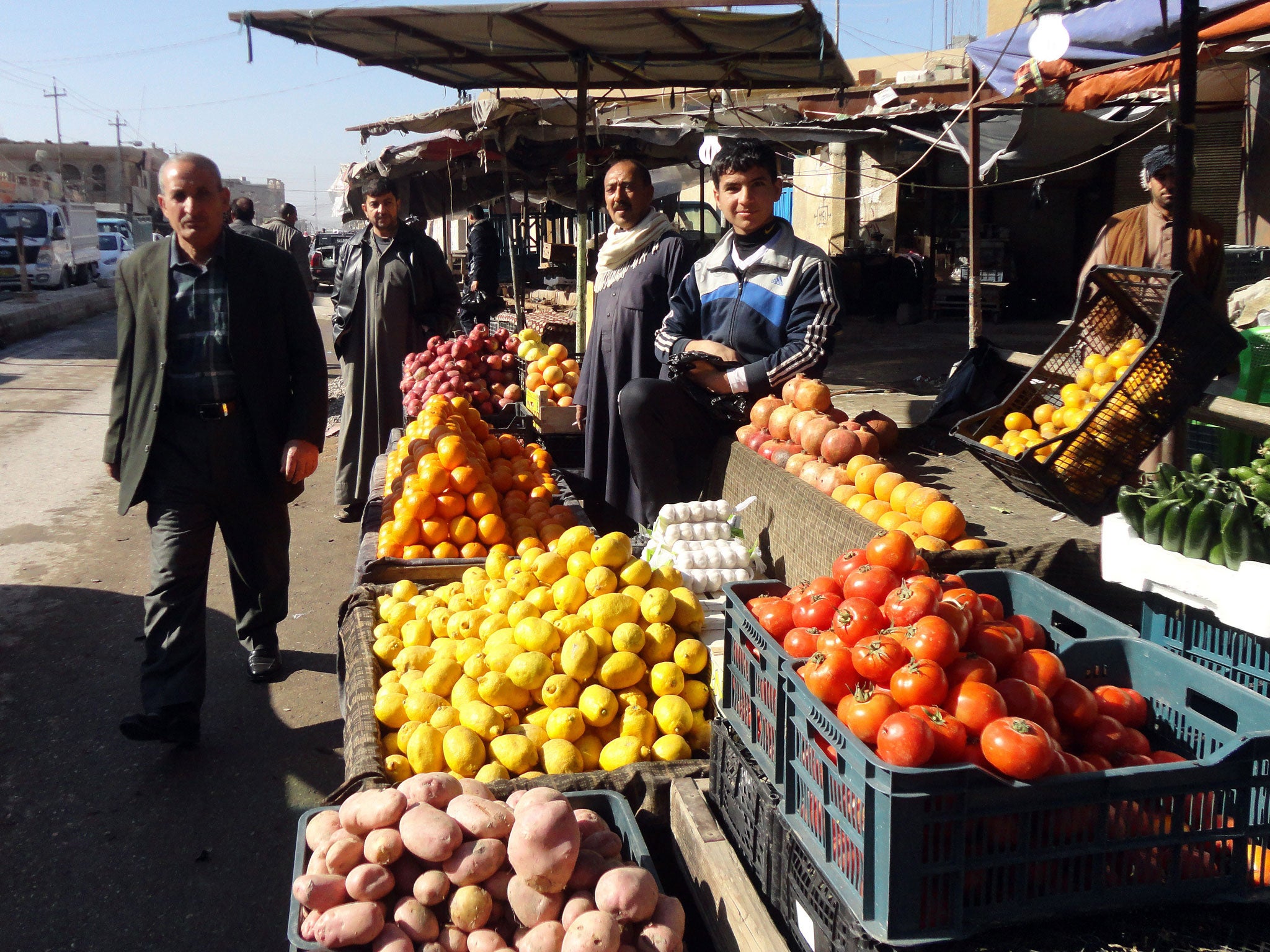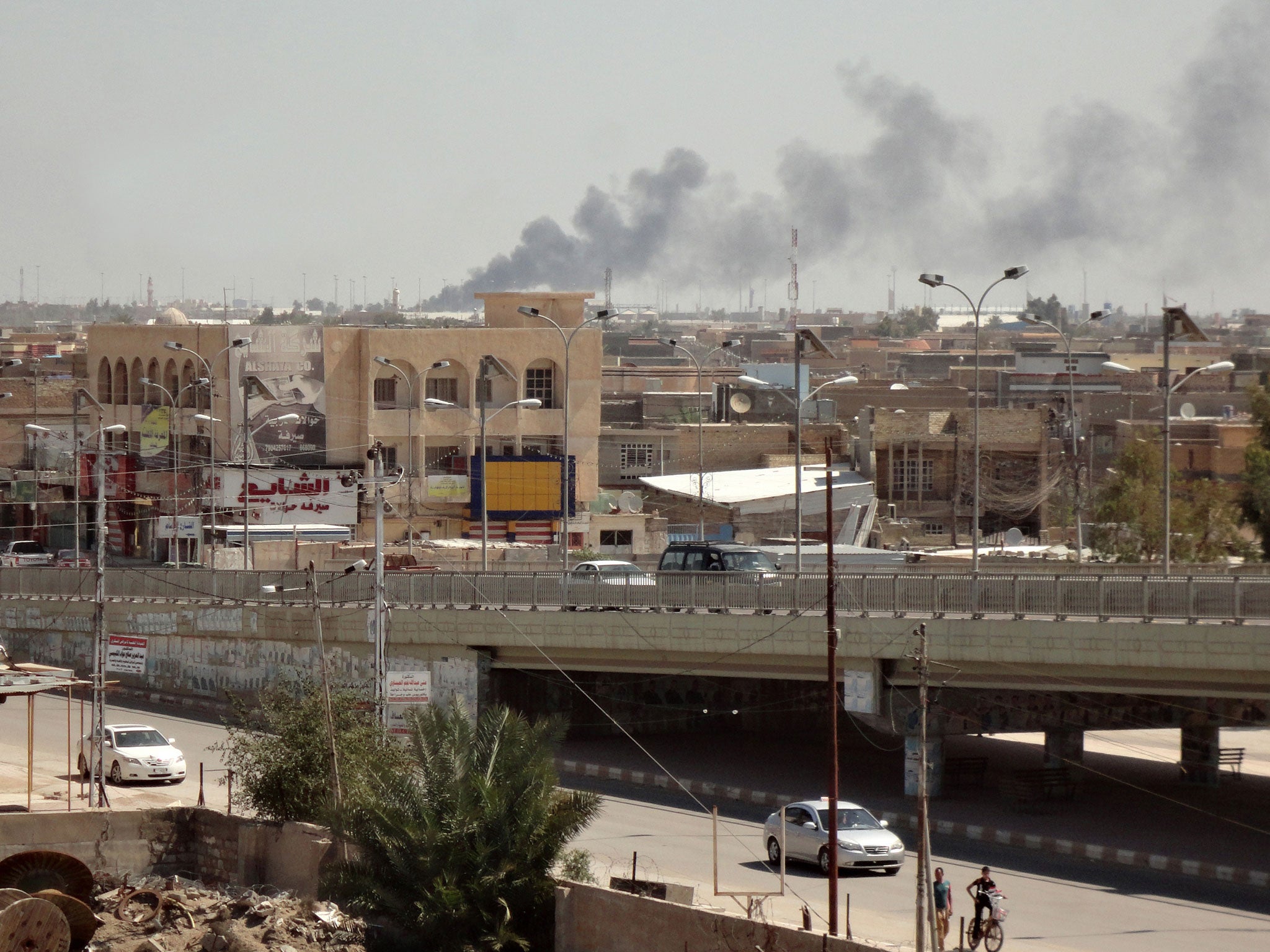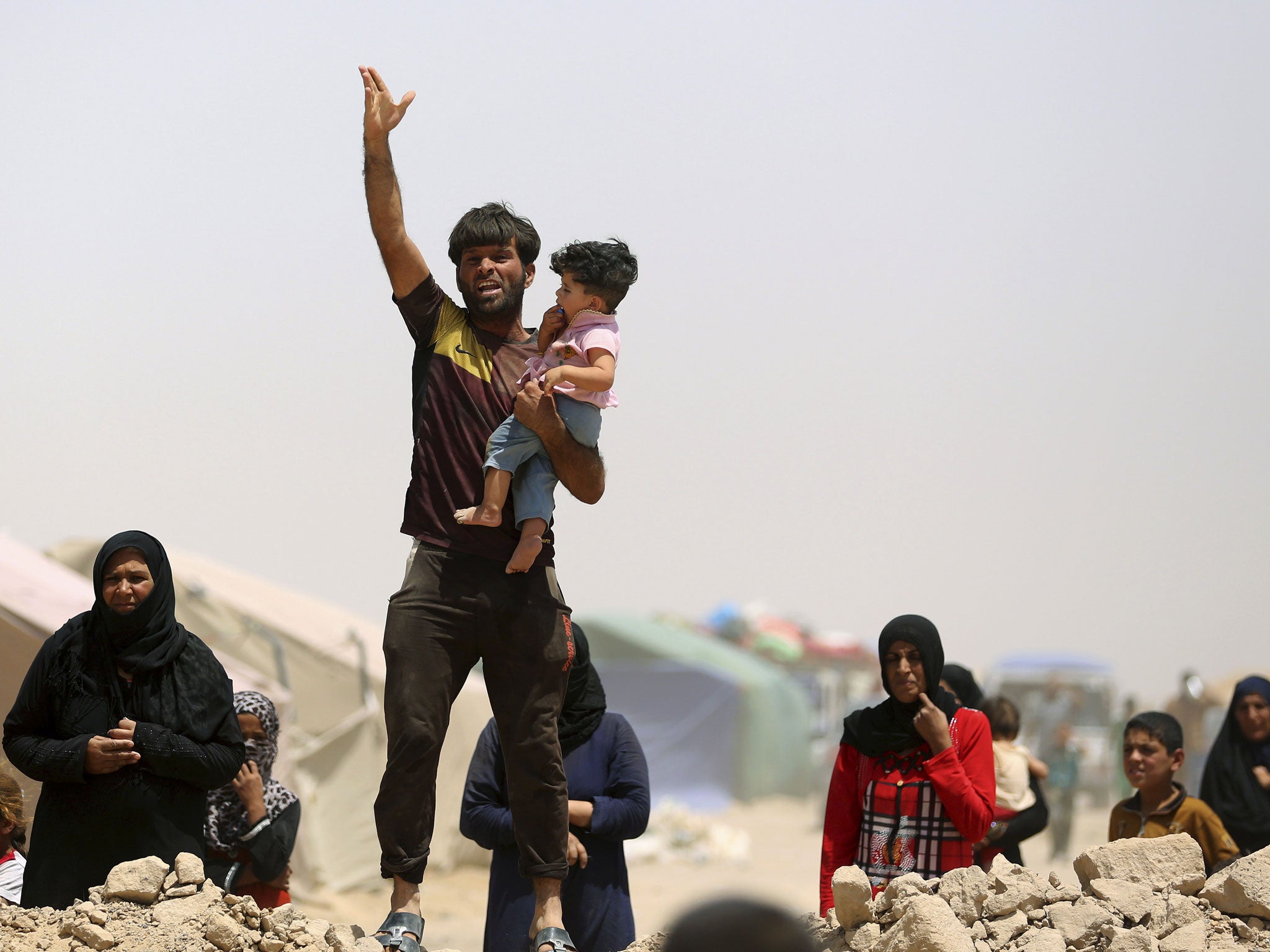Isis, a year of the caliphate: Day-to-day life in the 'Islamic State' – where any breach of restrictive, divinely inspired rules is savagely punished
A barber's illicit haircut earned him 80 lashes in Fallujah

Even in a city as dangerous as Fallujah, 40 miles west of Baghdad, Salem had a peculiarly dangerous occupation which meant that he was at risk of corporal punishment and financial ruin every day he lived there. A 35-year-old man, who, like everybody else in this article, does not want his real name published, he is the sole bread-winner of his family and also cares for his sick and elderly father. At the time Isis took over Fallujah in January last year, he was earning his living as a barber.
During the first six months of Isis occupation, the militants were generally moderate in their enforcement of Islamic fundamentalist regulations. Isis did not have a complete monopoly of power in the city and did want to alienate its people. But on important issues of principle, such as the correct Islamic haircut, the militants were adamant from the beginning. Beards were obligatory: no man could be clean shaven and Western haircuts were forbidden. “Shaving was prohibited and the punishment for shaving someone was severe,” says Salem. Isis closed most of the barber salons in Fallujah, but not Salem’s “because mine was a simple poor salon without posters so they didn’t close it.”
Even though his salon remained open, there were strict limits on what Salem could do for his customers so he did not make enough money to feed his family. He tried supplementing his income by selling vegetables in the market and only worked as a barber when he got a call from old customers, friends and relatives who wanted their hair cut.

He had no trouble until the day of his cousin’s wedding when disaster struck. He says: “my cousin came to my salon and asked me not only to dress his hair, but to shave his beard.” Salem was horrified by such a dangerous proposal because he was conscious of the punishment Isis was likely to inflict on any barber ignoring the shaving ban. He turned his cousin down flat, but the man then asked for his hair to be cut short in a modern way rather left to grow long as Isis demanded. The cousin argued that “nobody would notice because it was the afternoon and the street was empty.” Unwillingly, Salem complied with his cousin’s request and “dressed his hair, adding gel to make it look good.”
Salem and his cousin soon found out that they had badly underestimated how closely Isis monitored illicit haircuts. Four days after the wedding, Salem learned that his action had been reported by an Isis informant to the local religious authority. He was arrested and then sentenced to 80 lashes to be administered in public and, in addition, his barber’s salon was to be closed. In the event, he had received only 50 lashes, when “I fainted and was taken to hospital.”
Deprived of his ability to make a living in Fallujah, Salem went first to Ramadi, the capital of Anbar province, which was mostly under Isis control and where he had a brother. But the city was being bombarded by the Iraqi airforce and Shia militias so he left for Baghdad and finally Irbil, the capital of Iraqi Kurdistan where he hopes to find a job. He is one of many arrivals from Isis-controlled territory to be interviewed by The Independent in order to build up a picture of day-to-day life in the self-declared caliphate.
Over the last six months, we have spoken to everybody from fighters to farmers and tribal leaders to mothers of families about their experiences. We tried to reach beyond the routine denunciations of their former rulers by displaced Sunni Arabs seeking to allay the suspicions of their Kurdish hosts. Eyewitness testimony includes an Isis fighter who called himself Hamza and fled Fallujah because he believed he would be asked to execute people he knew and he had been offered Yazidi girls for sex, something he felt was no different from rape. The wife of an Iraqi army officer turned Isis commander left because she thought her husband wanted her to become a suicide bomber.
Many of those who sought refuge in the KRG were trying to escape poor living conditions and violence. Others cited two specific reasons for flight: they were frightened that their sons would be conscripted as Isis fighters or that their unmarried daughters would be forcibly married to Isis fighters. The so-called Islamic State is very much a militarised state whose military forces always get priority.
The five or six million people living in Isis-controlled territory exist in a world full of prohibitions and regulations, distinguishing good conduct from bad. Breach of these divinely inspired rules is savagely punished. The aim is to model human behaviour on the way it was in the days of the Prophet in the seventh century.
Rules closely define who is a Muslim and who is not, with Shia and Yazidis demonised as ‘apostates’ and ‘pagans’ who can be massacred or enslaved. Relations between men and women are minutely regulated, with the latter reduced to the level of chattels. Salem says that nobody in Fallujah is ignorant of Islamic State rules because they were previously read out in public every day, though this has now been reduced to three times a week. Speaking from memory, he gave a number of examples:
• Girls are not allowed to wear jeans and must wear Islamic dress (abaya and veil), Make-up is prohibited.
• No smoking of cigarettes or hubble-bubble. The punishment here is 80 lashes, but may include execution if there are repeated violations.
• Using the word ‘Daesh’, the Arabic acronym for Isis, is forbidden and the punishment is 70 lashes.
• Women’s sewing shops are closed in case a man enters one.
• Women’s hairdressing shops are closed for the same reason.
• Gynaecologists must be female.
• Women shall not sit on chairs either in the market or in a shop.
• Shops must close at the time of prayers.
• Taxi drivers who take customers to a distant destination they have not asked for and then demand money to bring them back are considered to have acted ‘to disrupt the interests of the people’(apparently a common crime in Fallujah). The punishment is amputation or beheading.
There are many other crimes and prohibitions that Salem might have mentioned. Women leaving the house without being accompanied by a male relative are taken home by Isis officials and their husband is given 80 lashes.
When Isis declared on 29 June last year that it was re-establishing the caliphate, its opponents in the outside world hoped that its outlandish laws and their brutal application would provoke resistance among people living in the Islamic State. After all, what was being enforced went far beyond sharia or Saudi Wahhabism, so many of whose tenets are similar to those of Isis.
There was real anger in Mosul at the new subservient status of women and the destruction of famous mosques, like that of Younis (Jonah) in Mosul, which was deemed by Isis to be a shrine. But there is no sign of counter-revolution or even effective armed resistance against a movement that has mercilessly crushed all opponents, such as the Albu Nimr tribe which has seen 864 of its tribespeople slaughtered. So far, those living within Isis territory who hate and fear it have reacted by fleeing rather than resisting.
The story of Salem the barber of Fallujah helps explain why this has happened. Isis monitors and restricts movement within its boundaries but he was able to pass through Isis checkpoints to Ramadi, explaining that he was going there to visit his brother. In the event, he stayed there only four days because of continuing airstrikes and shelling in the days shortly before Isis captured the last government-held enclaves on 17 May. Salem says that many families were leaving Ramadi, but adds revealingly that “many preferred to stay, among whom was my brother. He said that, although they are living under bombs, Isis is far better than the Shia militia and the Iraqi army.”
A similar point was made in an interview by Mahmoud Omar, a Sunni Arab photographer, whose parents were living in Ramadi. “Isis has shocked many people by its actions,” said Mahmoud. “But instead of the government treating us better to win us over, they are treating us worse.” As an example, he cited the a police station in the government-held enclave in Ramadi where “the police go on arresting Sunni, torturing them and refusing to release them unless their families come up with a bribe. I know one man who was there for a week before his family paid the police $5,000 (£3,200) to get him released.”

This is one of the great strengths of Isis. For all its failings, Sunni Arabs in Iraq compare it to an arbitrary and dysfunctional Shia-dominated government in Baghdad. Asked to compare the situation in Ramadi before and after the Isis take over, Salem says that under government rule Ramadi had no electricity, no fuel, no internet and no clean water for drinking and cooking. The local hospital and medical centre were not working despite vain pleas to the government from local people.
“Under the rule of Isis,” says Salem, who has no reason to like the group which beat him savagely and closed his business, “many big generators have been brought to Ramadi from Fallujah and Raqqa. In addition, they are repairing the power station at Khesab. As for the hospital, Isis brought in doctors, surgeons and nurses from Syria, so it is working again.”
Join our commenting forum
Join thought-provoking conversations, follow other Independent readers and see their replies
Comments